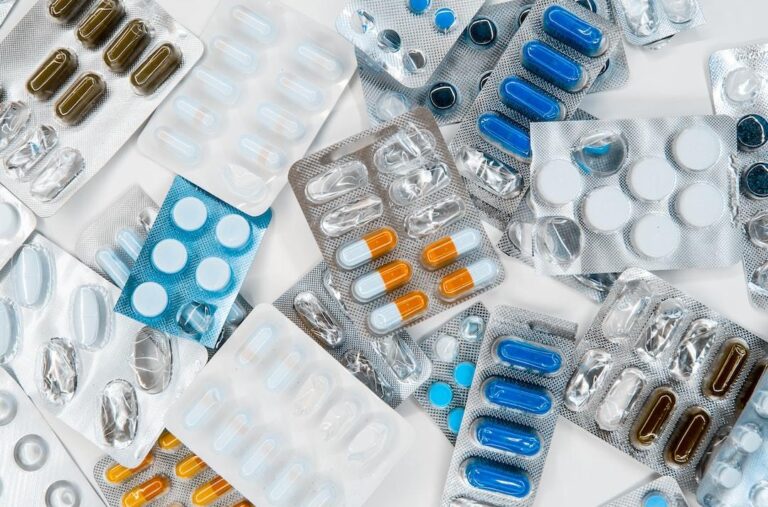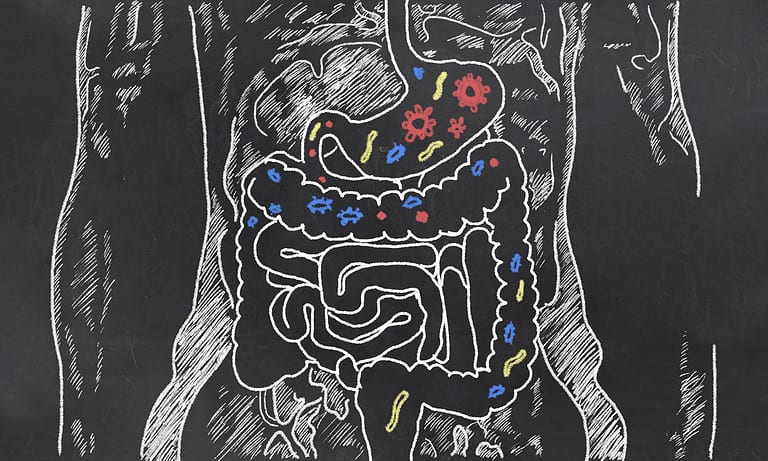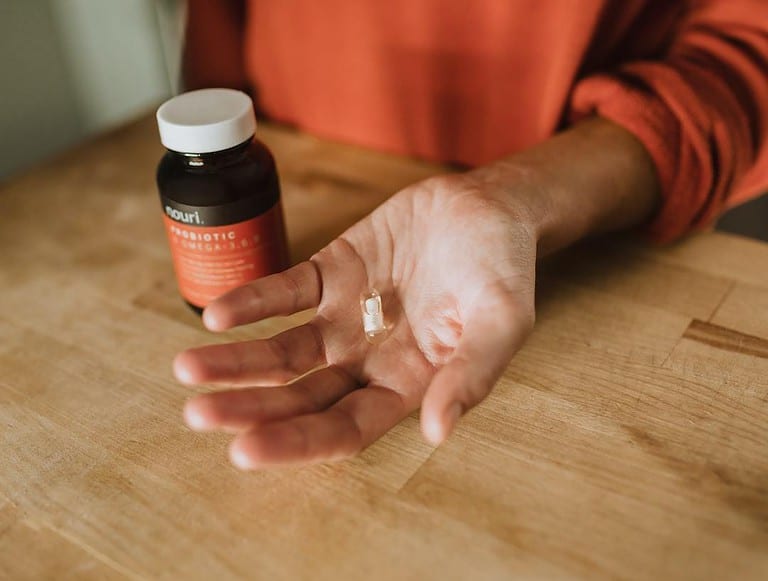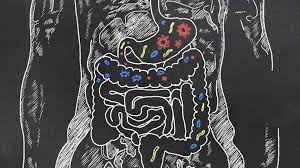What Do Harmful Bacteria Do in the Gut Microbiome: Explained
What do harmful bacteria do in the gut microbiome? This complex ecosystem of microorganisms in our gastrointestinal tract plays a crucial role in maintaining overall health. However, an imbalance in the composition of these bacterial cells can lead to various disorders, such as irritable bowel syndrome and inflammatory bowel disease.
In this blog post, we will uncover the intricate relationship between gut microbes and their influence on human health. We’ll explore recent studies on how dietary patterns influence our microbiota composition and examine potential mechanisms by which harmful bacteria invade our systems.
From understanding the intricate gut-brain connection to examining consequences like diarrheal diseases caused by pathogenic invasion, this comprehensive guide offers valuable insights into the question, “What do harmful bacteria do in the gut microbiome?” Gaining an in-depth knowledge of these microbial populations can help you make educated decisions concerning your diet and lifestyle to promote improved health.
Table of Contents
- Harmful Bacteria Invasion Mechanisms and Consequences
- The Gut-Brain Connection and Microbiome
- Dietary Patterns Impacting Gut Bacteria Composition
- FAQs in Relation to What Do Harmful Bacteria Do in the Gut Microbiome
- Conclusion
Harmful Bacteria Invasion Mechanisms and Consequences
Researchers are constantly working to understand how harmful bacteria manage to invade our gut microbiome, bypassing the protective mechanisms that usually prevent pathogen colonization. These intrusions can have serious outcomes, including diarrheal illnesses, one of the major sources of mortality among youngsters under five years old around the world. In this section, we will discuss what do harmful bacteria do in the gut microbiome and some of the ways in which these pathogens infiltrate our systems.
Pathogens Producing Their Own Amino Acids to Invade Human Systems
In order for harmful bacteria to establish themselves within our gut environment, they need a way to compete with the natural microbiota already present. One method they use is to produce their own supply of amino acids independently. This allows them not only to survive but also thrive within an otherwise hostile environment.
Diarrheal Diseases Caused by Harmful Bacteria Invasion
so, what do harmful bacteria do in the gut microbiome? The invasion of harmful bacteria into our gut microbiome can have severe consequences on our overall health, particularly if it leads to diarrheal diseases. According to the Centers for Disease Control and Prevention (CDC), nearly 1 in 9 child deaths worldwide is directly or indirectly caused by diarrhea – accounting for more than half a million deaths each year among children under five years old.
- E.coli: Escherichia coli, commonly known as E.coli, is a type of bacteria that can cause severe diarrhea and other complications. Some strains produce Shiga toxins which can lead to hemolytic uremic syndrome (HUS), a life-threatening condition affecting the kidneys.
- Salmonella: Another common culprit behind diarrheal diseases is Salmonella, which can be found in contaminated food or water sources.
- Clostridium difficile: Clostridium difficile (C.diff) is a bacterium responsible for causing inflammation of the colon and severe diarrhea. It often occurs after antibiotic use when the natural balance of gut microbiota has been disrupted.
The Gut-Brain Connection and Microbiome
Research conducted by Dr. Kirsten Tillisch found that the gut microbiome has a major impact on our overall health, including emotional processing and feeling sensations. The study demonstrated that consuming yogurt influenced regions in the brain associated with these functions. This body-brain connection could potentially explain why some individuals can consume unhealthy foods without gaining weight.
Study linking yogurt consumption to changes in brain function
In this groundbreaking study, participants were divided into three groups: one group consumed yogurt containing probiotics twice daily for four weeks, another group consumed a dairy product without probiotics, and the third group did not consume any dairy products during the study period. The findings demonstrated that those who had the probiotic-enriched yogurt showed a decreased activation in some regions of their brains associated with tension and fear, as opposed to individuals who either didn’t have any dairy or only consumed non-probiotic dairy products.
A potential explanation for individual differences in weight gain
- Gut bacteria diversity: Individuals with more diverse gut bacteria may be better equipped to break down food efficiently and maintain a healthy weight despite consuming high-calorie diets.
- Different metabolic responses: Some people’s bodies may respond differently to specific types of food due to genetic factors or variations within their gut microbiomes.
- Mindful eating habits: Those who practice mindful eating are more likely to be aware of how different foods affect their bodies and make healthier choices accordingly.
Dietary Patterns Impacting Gut Bacteria Composition
Our dietary patterns significantly impact the composition of gut bacteria, promoting diverse microbial populations essential for maintaining a healthy balance within our system. For example, following a Mediterranean diet rich in fish, poultry, fruits, vegetables, bread, potatoes, beans, nuts, seeds, and olive oil encourages beneficial bacterial growth while medications like antibiotics can disrupt this balance.
Benefits of the Mediterranean Diet on Gut Bacteria Diversity
The Mediterranean diet is renowned for its health benefits and has been linked to improved heart health and reduced risk of chronic diseases. A study found that individuals who followed a Mediterranean-style eating pattern had increased levels of beneficial bacteria such as Lactobacillus and Bifidobacterium species compared to those who consumed a typical Western diet. These good bacteria help maintain digestive function and overall well-being by breaking down complex carbohydrates into short-chain fatty acids (SCFAs), which provide energy for colon cells.
- Fish: Rich in omega-3 fatty acids, which have anti-inflammatory properties that promote gut health.
- Poultry: Lean protein source providing essential amino acids necessary for tissue repair and immune function.
- Fruits & Vegetables: Packed with vitamins, minerals, antioxidants, and fiber supporting digestion and nourishing gut microbes.
- Whole Grains: Contain prebiotic fibers that feed beneficial bacteria, promoting their growth and activity.
- Nuts & Seeds: Provide healthy fats, fiber, and plant-based protein for a balanced gut microbiome.
- Olive Oil: Rich in monounsaturated fats and polyphenols, which help reduce inflammation and support microbial diversity.
Negative Effects of Medications on Gut Microbiota
While antibiotics can be life-saving when necessary, they can also have unintended consequences on our gut health. Antibiotics work by killing or inhibiting the growth of harmful bacteria causing infections; however, they may also target beneficial bacteria residing in our digestive system. This disruption to the delicate balance within our gut microbiome could lead to gastrointestinal issues such as diarrhea or constipation.
Moreover, prolonged antibiotic use has been associated with an increased risk of developing chronic conditions like inflammatory bowel disease (IBD) or obesity due to alterations in bacterial composition. Therefore, it is crucial to use antibiotics judiciously under medical supervision while considering alternative strategies for maintaining optimal gut health through diet and lifestyle choices.
FAQs in Relation to What Do Harmful Bacteria Do in the Gut Microbiome
What do harmful bacteria do to the gut microbiome?
Harmful bacteria in the gut microbiome can have a negative effect on health. These bacteria can damage the lining of the intestines, leading to inflammation and irritation. They also interfere with digestion, absorption of nutrients, and immune system functioning.
Additionally, they may produce toxins that disrupt normal cellular processes and cause disease-causing infections or further damage to intestinal cells.
What are three things that the human gut microbiome can affect?
- The human gut microbiota can have an influence on immunity, digestion, nutrient assimilation, and psychological state. It is responsible for producing essential vitamins and regulating hormones vital to our overall well-being.
- Additionally, it influences metabolic pathways, which play a role in weight gain or loss by affecting how we absorb calories from food and store energy in fat cells. This helps regulate blood sugar levels and cholesterol levels too.
- Moreover, dysregulation of the microbiome has been linked to a variety of ailments, including obesity, diabetes, autoimmune disorders like Crohn’s disease and Colitis, and even some types of cancer.
Conclusion
Taking steps to enhance gut health can help decrease the effects of harmful microorganisms in the digestive system microbiome. Eating a balanced diet with plenty of fruits and vegetables, getting regular exercise, and reducing stress are all important components for maintaining a healthy gut.
Additionally, probiotics may help support beneficial bacteria populations in the digestive tract, which could ultimately lead to better overall health. By understanding what do harmful bacteria do in the gut microbiome and implementing these strategies into your lifestyle today, you can ensure that you have optimal digestive wellness tomorrow.
Take control of your health and well-being by learning about the potential harm bacteria can cause in the gut microbiome. Get started with Smart Living Now to access resources, tips, and advice on how to maintain a healthy balance for optimal wellness.


.jpg)






